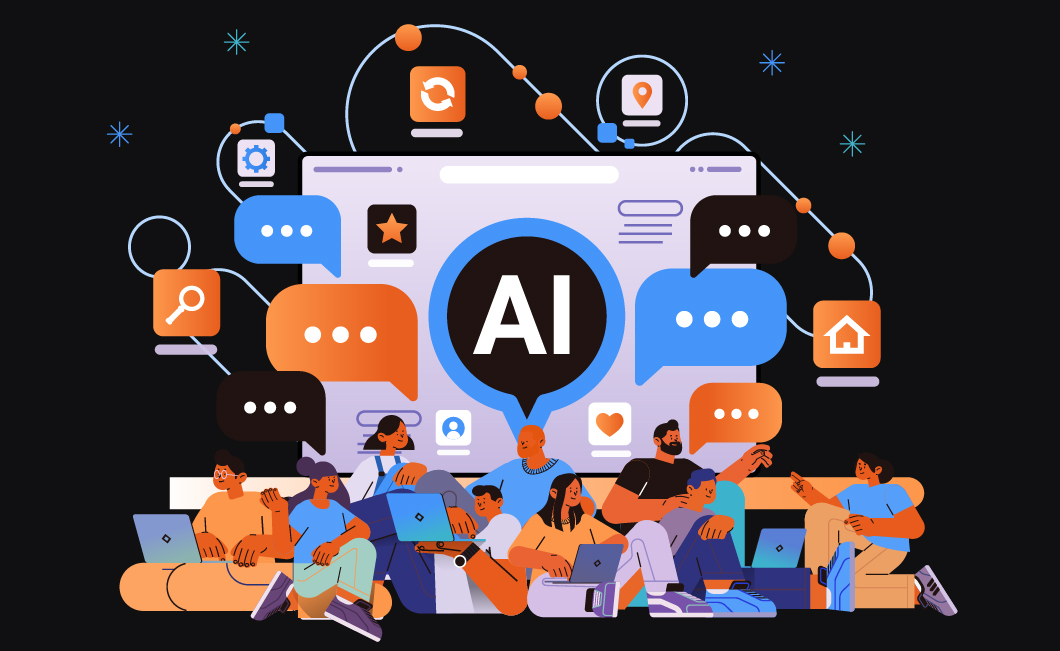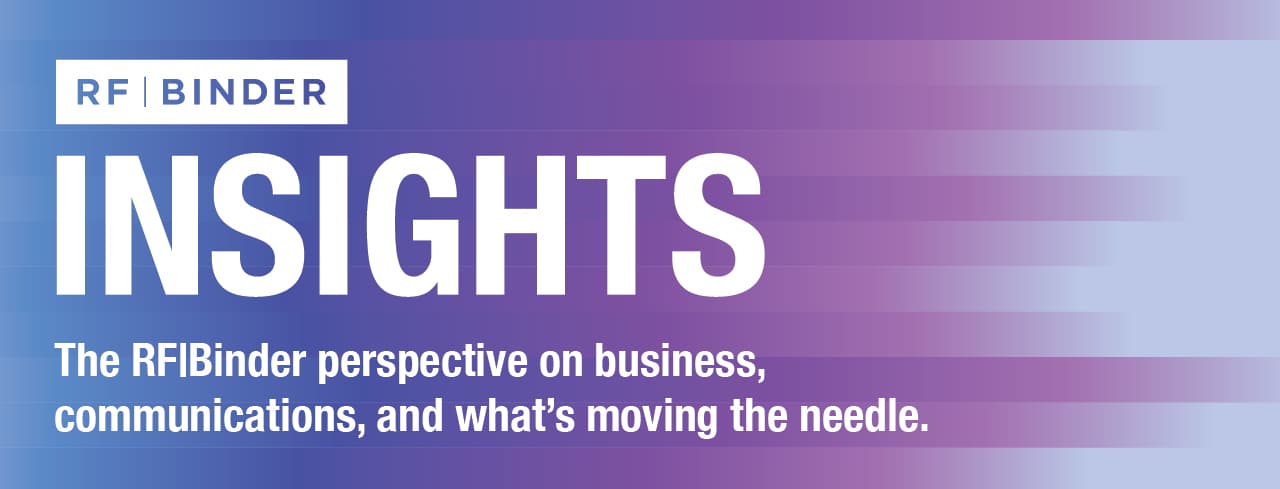RF|Binder invited Edwin Wong, SVP of Insights, Research and Innovation at Vox Media, to join us for an Hour to Empower to speak about the future of generative AI, how we’re using it now, and how that relationship is changing. Edwin has over 20 years of experience studying and researching digital consumer behavior to identify key trends that help advertisers capitalize on these trends to effectively connect with their core audiences. He has been studying digital consumer behavior for nearly 20 years and has held previous roles at BuzzFeed, Pinterest and Yahoo.
RF|Binder hosts Hour to Empower sessions regularly, featuring a diverse array of speakers and thought leaders. These sessions aim to encourage introspection, foster meaningful conversations and push new perspectives to lead to tangible outcomes for our clients.
In our digital age, media, technology and human-tech relationships are evolving at an exponential rate. And of all the recent technological innovations, generative AI is easily one of the most polarizing and often misunderstood.
In a recent presentation and discussion with the RF|Binder team, Edwin Wong walked through Vox Media’s 2024 AI Report, and dug into some of the most salient anxieties and potential opportunities surrounding AI. The conversation covered some of the prevailing – and sometimes contradictory – perceptions surrounding AI, the ways AI is currently being used, and the potential changes that could improve and expand its impact in a responsible manner. We have summarized some of the key takeaways and themes from the report and conversation below.
The Development of AI: What Are We Using It For?
People have been engaging with AI on an increasingly regular basis in their personal and professional lives, and while interest continues to grow, the ways in which individuals seek out and implement this technology into their lives in a meaningful way is moving at a slower pace than some might expect. Implementation and usage of AI across the board is shifting more toward productivity aids as opposed to creative expression.
New users are slow to pick up AI-driven technologies for several reasons, including but not limited to lack of understanding, lack of awareness and general distrust. Current users, on the other hand, are developing into superusers, with 4 out of 5 regular users finding at least one use for AI technology in their lives. Two-thirds of these superusers are utilizing these tools on a weekly basis. In general, the younger a user is, the more use cases they find; though, there is one place where we all use AI—email. Most email platforms auto-generate predictive text that allows users to complete sentences with greater speed.
Younger users are also using AI tools as a supplement or replacement for traditional search engines at increasing rates, with 61% of Gen Z respondents surveyed reportedly using AI tools in the place of search engines.
The Trust Factor: Fake News and Environmental Concerns
A great deal of the resistance surrounding AI technology is a lack of trust and understanding. Users are suspicious of internet-trained AI models and are wary of consuming information that has been AI-generated or potentially pulled from unreliable AI-backed sources. 55% of Americans express concern that AI will disrupt the upcoming elections, despite tech companies’ promises to combat misuse of their tools during this time.
Additionally, while AI can be a great tool for improving creativity and productivity, it can come at a detriment to our planet: Every 10-50 generative AI search prompts reportedly uses 16 oz. of water to cool down servers. And with these tech giants competing in the AI race, this means increased water usage. Microsoft disclosed that its global water consumption rose by more than a third from 2021 to 2022, climbing to nearly 1.7 billion gallons. For Google, total water consumption at its data centers and offices increased by 21% in 2022 compared to 2021, coming in at 5.6 billion gallons. With AI accounting for a predicted 7.5% of all technology use by 2030, sustainability issues are becoming increasingly relevant.
However, not everyone is tuned in to AI’s impact on the environment or the data we consume. Studies have shown that most Americans trust AI, even when they know they shouldn’t. While most (85%) want some form of governmental regulation, American users at large believe misinformation and energy efficiency concerns must fall on tech corporations to find solutions.
What Does This Mean for Communications?
AI can help as well as hurt when it comes to the jobs of communications professionals. AI can automate and streamline many of the administrative tasks that fall under our jurisdiction, like news scanning, media and social partner identification, analytics collection and trend analyses. In automating these tasks, we free up more time for creative and strategic ideation. On the other hand, there is concern within the communications industry (and beyond) that AI may replace certain jobs; interestingly, fear of how AI will impact jobs is highest among those who use AI technology regularly in their work, with over 60% of said employees reporting concern in a 2023 poll conducted by SurveyMonkey (CNBC).
Consumers are also interested in AI-generated products. Data shows (The Verge) that users are more interested when a product or campaign is marketed as “powered by ,” though the oversaturation of AI-driven media is likely to reduce public interest in years to come.
The flip side is that AI can amplify the spread of misinformation and harmful fake news tactics while simultaneously increasing data privacy concerns. Visual communicators, such as graphic designers, must also be hyper-vigilant about protecting their art from AI-generated content theft. Communications professionals must be vigilant about where and how to responsibly implement AI in their lives as well-informed subject-matter experts—media literacy is more important than ever before, and it’s particularly important in the communications space.
The Case for AI Optimism
The impact that the introduction of AI technology will have on our society is reminiscent of past moments of massive innovation, such as the invention of the printing press, steam engine or electricity. AI possesses great potential to improve our world and how we work, communicate and live—AI-driven social media networks have made humankind more connected than ever. Generative AI is being used to help develop new drugs for health conditions and identify previously difficult-to-diagnose biomarkers for diseases such as long COVID-19 and the early stages of Alzheimer’s (The Economist). Scientists have also been experimenting with uses for AI in understanding and predicting volcanic events, helping to create better early-warning systems to reduce the risk of human loss in natural disaster events (University of Granada). In combination with human ingenuity, there is no limit to what AI will be able to achieve.
Edwin’s presentation highlighted that curiosity is necessary and balance is key when analyzing and implementing new technologies. We should act as new-age “luddites,” in the most original meaning of the term: not opposed to AI and technological advancements, but using a discerning lens and considering, with cautious optimism, how these tools can improve our lives and our work.

